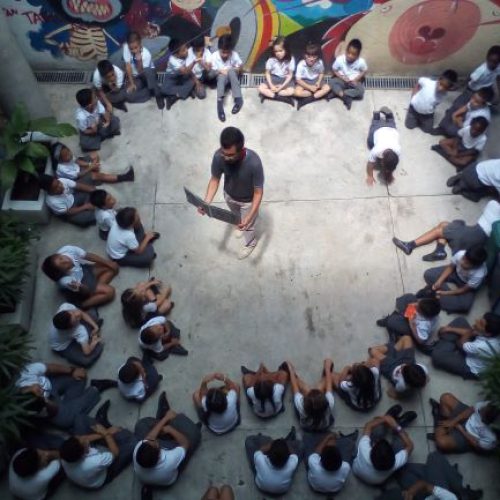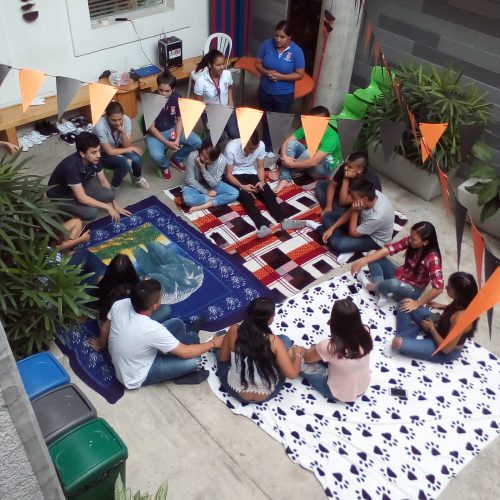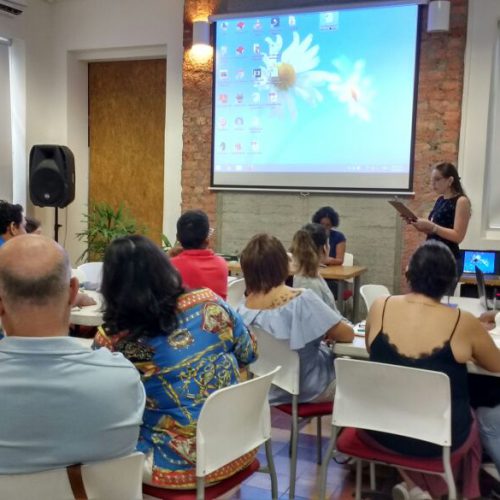Colombia: Readings for peace

MasterPeace Colombia creates an innovative education project together with libraries and youngsters in rural and urban areas of Cali.
Project Brief
This project promotes the use of e-readers for the development of technology, creativity, and education in public schools and public libraries in Cali, Colombia. With this project, MasterPeace Cali supports the transformation of violence into peace through innovation in education. The profile of the direct beneficiaries is young students between 12 and 18 years, who belong to difficult socioeconomic backgrounds, come from vulnerable neighborhoods or have been victims of poverty and violence.
Project Context
Despite improvements in security, crime rates remain high in Colombia. The city of Cali is ranked as the number 10 most dangerous cities and has still not managed to avoid violence after many measures have been taken to prevent it. Much of the violence has been blamed on turf wars from opposing cartels, the neo-paramilitary gangs of Los Rastrojos and Los Urabeño, both of which make vast amounts of money from trafficking Colombia’s well-known export article, cocaine. On top of this, violence has erupted since decades between the guerrilla force of the Revolutionary Armed Forces of Colombia, aka FARC, and the government. One of the goals of the project ”Transmedia: Readings for Peace” is to support peace-building through education by creating space for the development of the communities that are affected by violence. In this way, MasterPeace Cali tackles SDG 4, “Quality Education”, SDG 11, “Sustainable cities and communities” and SDG 16, “Peace and Justice”.
The organization works closely together with public libraries on this innovative program, introducing ICT (Information & Communication Technology) as a pedagogic basic tool to youngsters from the above-mentioned backgrounds. The project emphasizes the importance of reading, individual growth, and interaction within and between the communities. With this emphasis, MasterPeace Cali works for promoting transmedia literacy and for improving the academic level of young people from vulnerable rural and urban neighborhoods, in order to give them the opportunity to be part of the global technological revolution. They further aim to help the youngsters with becoming peace agents, setting positive examples and teaching civil culture to their peers, so that they would be able to plant the seeds of socioeconomic development in their communities and close the technological gap.
Project Outcome
- 240 students are taking part in the project
- 8 secondary school teachers are being trained
- 4 librarians are involved
- 500 new library visitors per month
Project Impact
- Integration of marginalized communities.
- Creation of employment opportunities
- Reducing the gap of knowledge between public schools and universities



